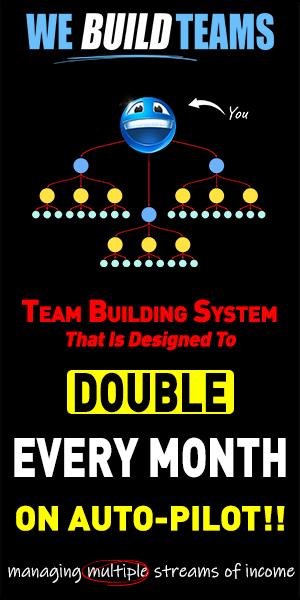A CRM (Customer Relationship Management) tool can be a valuable asset in building your network marketing business.
A CRM (Customer Relationship Management) tool is a software platform that helps businesses manage and analyze customer interactions and data throughout the customer lifecycle, with the goal of improving customer relationships and business performance.
A CRM tool typically includes features such as:
- Contact Management: A centralized database for storing and organizing customer data such as names, contact information, and demographic information.
- Lead Management: A system for capturing, tracking, and nurturing leads through the sales process.
- Sales Automation: Tools for automating and streamlining sales processes, such as sending follow-up emails, scheduling appointments, and tracking deals.
- Marketing Automation: Tools for automating and streamlining marketing processes, such as email marketing, social media marketing, and lead nurturing.
- Analytics: Tools for tracking and analyzing key metrics, such as conversion rates, return on investment, and customer behavior.
A CRM tool can help businesses better understand their customers, improve their communication with customers, and increase their sales and revenue. It can also help businesses streamline their processes, improve their efficiency, and achieve better results.
Here are some examples of popular and widely used CRM tools that are suitable for network marketing businesses:
- Hubspot CRM: Hubspot CRM is a free, comprehensive CRM tool that offers a range of features such as contact management, lead tracking, deal tracking, and marketing automation.
- Pipedrive: Pipedrive is a sales-focused CRM tool that is designed to help businesses close more deals. It offers features such as deal tracking, lead management, and pipeline management.
- Zoho CRM: Zoho CRM is a comprehensive CRM tool that offers features such as lead management, contact management, sales automation, and marketing automation.
- Salesforce CRM: Salesforce CRM is a widely used and highly customizable CRM tool that offers features such as lead management, contact management, and sales automation.
- Infusionsoft: Infusionsoft is a CRM tool designed for small businesses. It offers features such as lead management, marketing automation, and e-commerce integration.
These are just a few examples of CRM tools that network marketing businesses can use to streamline their process, improve their efficiency, and achieve better results. The right CRM tool for your business will depend on your specific needs and requirements, so it is important to do your research and compare the different options before making a decision.
Here are some tips on how to build your network marketing business with a CRM tool:
- Choose the right CRM tool: Choose a CRM tool that fits your specific needs and the requirements of your network marketing business. Consider factors such as ease of use, features, and cost when making your decision.
- Integrate your CRM with your marketing tools: Integrate your CRM with your marketing tools, such as your email marketing platform, social media platforms, and website, to streamline your process and improve efficiency.
- Organize and categorize your contacts: Use your CRM to organize and categorize your contacts based on factors such as lead status, buying behavior, and demographics. This will help you target your marketing efforts more effectively.
- Automate your follow-up: Use your CRM to automate your follow-up process, and ensure that you are following up with your leads in a timely and consistent manner.
- Track your results: Use your CRM to track your results, such as your conversion rate, return on investment, and lead flow. This will help you measure the effectiveness of your marketing efforts and make informed decisions about how to improve.
Here’s a story to illustrate this point: Sarah was struggling to keep track of her contacts and follow up with them effectively in her network marketing business. She decided to implement a CRM tool, and chose one that fit her needs and the requirements of her business. She integrated her CRM with her marketing tools, organized and categorized her contacts, automated her follow-up process, and tracked her results. By using a CRM tool, Sarah was able to streamline her process, improve her efficiency, and achieve better results in her network marketing business.
By using a CRM tool, you can streamline your process, improve your efficiency, and achieve better results in your network marketing business.

